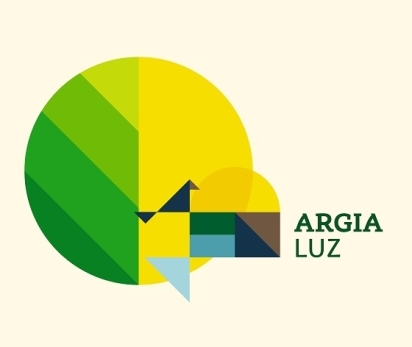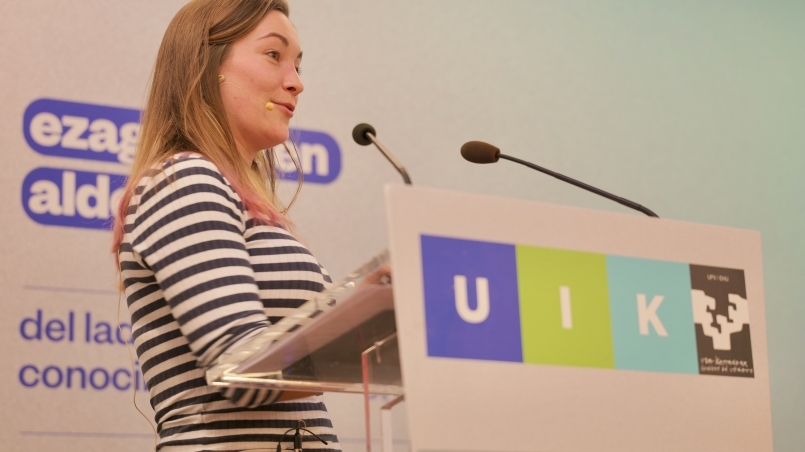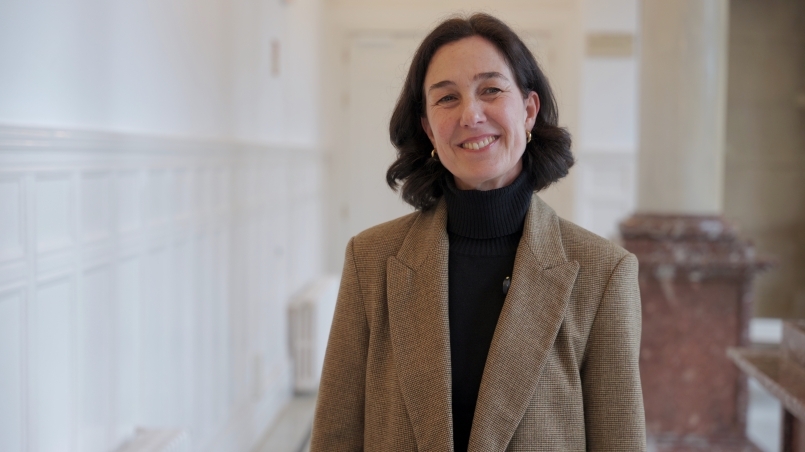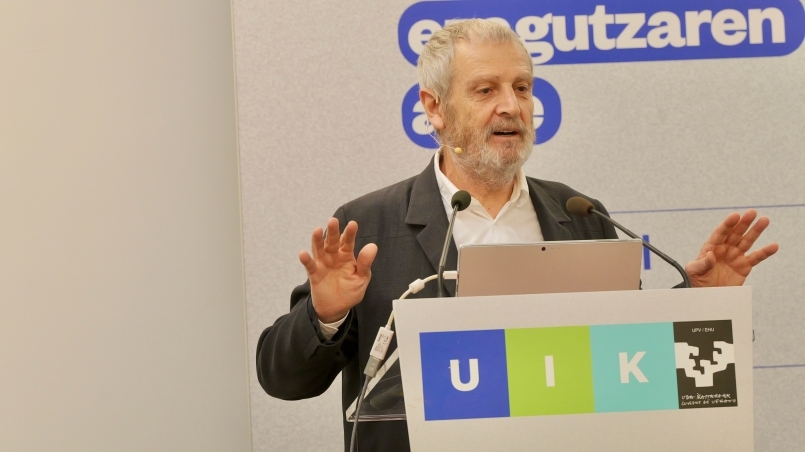We have presented the 39th edition of the Summer Courses with the intention to throw light on the situation that we live
<p> </p> <p> <strong>A special edition, characterized by new content and online formats adapted to the situation caused by the pandemic</strong></p> <p> <strong>The UPV/EHU Summer Courses Foundation has planned different scenarios for this edition where the necessary measures have been taken to guarantee access to its contents: on one hand, new course formats have been created and the virtual platform has been improved to connect from anywhere; on the other hand, all the necessary health and safety measures have been provided to guarantee that, as soon as the situation allows, the courses can be held face-to-face.</strong></p>

In the opinion of the rector of the UPV/EHU, Nekane Balluerka, this new edition of the Summer Courses constitutes a challenge. “It is in two ways –she has assured-, on the one hand, because we must face exceptional conditions, which test our ability to adapt; on the other hand, because reflecting on the global pandemic is also an academic imperative, and this edition of the courses has made a serious and consistent commitment to it in its programme. We have also configured a dynamic, flexible organization, aimed at adapting to the different alternatives for the evolution of the pandemic, but always putting personal security as a fundamental priority. Thanks to the efforts of all the people, institutions and companies involved, the offer of this years’ Summer Courses is as much or more suggestive than previous editions”.
Rafael Pardo, director of the BBVA Foundation, the main private institution collaborating in the UPV/EHU Summer Courses for 22 years, has pointed out that "in the current context, characterized by a global crisis, with a changing and uncertain profile, but with a systemic nature, deeply affecting from the most precious good, health, a wide range of stages of economic life, social and institutional, it matters more than ever the ability to generate and disseminate reliable knowledge, the flexibility, inventiveness and commitment of the university, research centers and the entire health system network to overcome the challenge derived from Covid-19. The UPV/EHU Summer Courses, a reference of excellence and professionalism, have been able to redesign in a record time a significant part of its content offer, the hybrid way of offering it, digital and face-to-face, and even the period of development of them, making evident the innovative vocation and commitment to the public sphere that characterizes the UPV/EHU Summer Courses Foundation, the scientific community and our academic institutions”.
This new edition will start in June, first with Live online Summer Courses. Directors and speakers of the courses scheduled for 2020 have made a significant effort to adapt the face-to-face programs they had proposed to these new formats. The courses will be a space for meeting and discuss, truthful and calm, in which to deal the multiple topics proposed, that this year range from education, through aging, to sustainability.
The Director of the Summer Courses, Itziar Alkorta, stresses that “This edition of the Summer Courses will allow us to directly and truthfully inform ourselves about the moment in which we live, in the hands of expert people with whom we share our points of view and our doubts. A space of light and serenity in the middle of this informative maelstrom.
In addition, we will have a special COVID19 cycle, which will offer the keys to the pandemic and analyze the bases of the new normal situation. These will be courses where speakers and students will share the virtual space of the new Summer Courses platform, which has videoconferencing tools and online participation. This type of courses will be held throughout the edition in order to allow the participation of people who, for different reasons, cannot move.
The online offer has been developed in collaboration with experts in the field of digital technologies, in order to continue offering a space for information, discuss and meeting at a time when effective collaboration is more necessary than ever, with a scientific base, of the different agents of society such as academics, social entities, institutions, professionals and citizens in general. With this aim, special open contents have been programmed, aimed at the general public, to inform and discuss on the key aspects of the pandemic.
As the summer goes, the attendance will be incorporated into the program, so that this year the bulk of the program will be held between September and the end of October. The Summer Courses will guarantee compliance with all relevant sanitary measures at all times.
The Sustainability Forum will be held in September, with highly current content, among others, those related to the pandemic.
For capacity reasons, and in order that the experience of all the participants in the Summer Courses is developed within a framework of security and with the appropriate sanitary measures, in addition to the usual venues of the Summer Courses, new spaces have been enabled. At the same time, this year it will be offered the possibility of following some of these face-to-face Summer Courses in a live online format. In this way, the opportunity to participate is opened to people who, due to the limitations of the COVID-19 situation, cannot move or prefer to follow the online courses.
Currently, and in order to respond to the demand for continuous training of students to face the challenges posed by the COVID-19 pandemic, the Summer Courses Foundation has doubled the offer of online continuous training courses that it had been offering throughout the year, so it is planned to reach more than 80 courses in this format.
Today, the Summer Courses programme is presented and online registration is opened, which, taking into account the situation we are experiencing, will maintain the usual reductions for the beneficiary social groups until the day the course is held. Due to this situation, the programme may experience variations depending on the evolution of the pandemic.
In the information on each activity details the methodology and format. The information will be updated and completed on time on the website.
30 courses about sustainability
This edition of the Summer Courses has a proposal of about thirty courses on sustainability, which go through climate change, biodiversity, mobility models, economic responsibility, corporate social accounting or habitability models. But, in this edition, the reading of the energy efficiency of our houses, their exits through windows or balconies that we are now valuing so much, the urban design of our cities, their approaches to mobility for all generations, require a closer look. Our capitals and our towns are not designed for a pandemic of the 21st century, so it is obvious that there are many issues that can be reconsidered. A work in which specialists in Architecture, Urbanism, including Psychology will be involved, specialists with whom we are going to count on in this very special edition of the Summer Courses.
The value of the local product as part of a circular economy, the social responsibility of business organizations, that of specific polluting sectors and their progressive transformation, are many other aspects to be addressed, as well as our commitment to climate change, cooperation policy and the different Sustainable Development Goals (SDGs) in the 2030 Agenda.
The challenges of education
Who knows what the school of the future will be like?
The educational world and its permanent updating has always been one of the clearest vocations of the UPV/EHU Summer Courses. Understanding our work as a public service, we redouble our effort to bring these professionals closer to their lifelong learning possibilities. Today, digital skills are more necessary than ever. Virtual education is more real than ever. Online education is here to stay. Its techniques, pedagogical methods, its enormous possibilities are used in many of our courses. We do not stop talking about an inclusive school that understands the multiculturalism in which we live, that integrates, but does not dilute personalities, that unites cultures, religious beliefs and social scales, the educating city is what we are preparing.
The school sows vocations for science and technology. It is the objective of the STEAM program and one of the bets of the UPV/EHU Summer Courses. Science, technology, engineering are not a fad, as we are checking these days. The complexity of mathematics and science is the obstacle to overcome and the ways of arousing their interest in youth is not a bald task. We have several proposals to learn how to create, with new pedagogical techniques, that curiosity to know how much mathematics is in a novel, what techniques were used by the person who invented the WhastsApp to which we are stuck all day, or how a 3D printer, that we are talking about so much, works.
Ageing up for debate
The ethical, social and political debate created in the last two months around the way of life that awaits us when we grow up, has never happened before. The analysis of the different variables of aging takes special relevance in this edition. We all want to reach that stage of life, but in a dignified way. The current support model has been called into question. That we must "rethink the model" is one of the few things that has raised a consensus, a model that, according to the experts of our course proposals, necessarily has to place the person and his/her rights at the center of the stage. A model and physical space that make possible physical and emotional bonds with an environment that does not turn their backs on their rights to their health or their quality and dignity of life. Our course proposals start from a deep gerontological, psychological and architectural analysis of expert people who have been learning from this reality for years.
The pillars of the welfare Society in the postCOVID world
Several courses claim that the new economic stage should be governed by new rates that evaluate aspects such as social welfare and the health of the planet. The idea is not new: months before the outbreak of the pandemic, the Davos Forum assumed that traditional production models were already the past. What economy awaits us after the pandemic? This is one of the questions that undoubtedly raises the most interest in our program.
Public health resources will also be one of our focuses. Their permanent vigilance or investigation must come out strengthened from this pandemic, knowing how we know that others await us in the near future. Public health is more than the health of individuals.
Everything is at stake and in debate. We propose a truthful debate. We do not want to risk not learning anything from the reality we live in. The UPV/EHU Summer Courses provides the opportunity to learn rigorously and to debate on what concerns and matters to all of us.
All this would not be possible without the unconditional support shown by institutions collaborating with the Summer Courses: Department of Culture of Donostia/San Sebastian Town Hall, Department of Culture of Gipuzkoa Provincial Council, Department of Education of the Basque Government, Osakidetza and Department of Health of Basque Government, BBVA Foundation, Irizar and many other collaborators who at these critical moments have demonstrated to be with us. Our thanks to all.
Today the registration for the live online courses and face-to-face courses is open.


